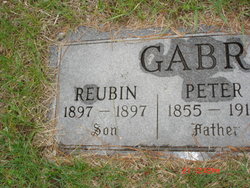Lori Anderson spooned jollof rice and chicken into crockpots to keep it warm, and looked expectantly at the door. She was hoping for as many perfect strangers as possible.
On the first Thursday of every month, her Transformative Circle group hosts an open dinner for people in the northern suburbs. The point is to get them talking — across race, class and cultural divides — about much more than the weather.
“YES, the evening will be fun,” read her invite, posted to the nonprofit’s Facebook page. “All are welcome at the table!”
For each dinner, Anderson picks a theme, carefully crafts a series of provocative questions, prints them out on slips of paper and puts them on tables she sets up in the Coon Rapids Civic Center. There are no facilitators, no talking sticks, just neighbors — who have likely never met.
“We’ve talked about religion, we’ve talked about bias,” said Anderson, who works for the city of Coon Rapids as a facilities coordinator, but founded the group as a personal project.
Anderson’s dinners are part of a wider movement to create “intentional conversations” by gathering people from diverse backgrounds to talk with one another and perhaps gain insight into different perspectives.
Marnita’s Table, the Minneapolis group that Anderson trained with, has brought nearly 50,000 people together during the past decade. But founder Marnita Schroedl said these kinds of connections are needed now more than ever.
“We are in a fraught moment in history, and people are feeling it,” said Schroedl. “They aren’t even sure how to approach somebody different right now.”
To help foster connection, Schroedl’s group threw a dinner party on a freeway bridge this summer, bringing together 300 people for a three-course meal and reconnecting neighborhoods long divided by Interstate 35W.
“The food is the equalizer. The food also stands in as a metaphor for resources in the community,” Schroedl said. “You’re worried about ‘is there enough for me?’ ”
In addition to Coon Rapids, Marnita’s Table has worked with communities from Burnsville and Owatonna, Minn. Currently, the organization is recruiting 100 Twin Citians to practice “radical hospitality” by hosting these kinds of dinners in their own homes.
The practice has been popping up around the country.
After hosting more than 50 dinner parties for strangers, the founders of an East Coast startup called Convers(ate) have a plan for “authentic and meaningful conversations” in a box.
Inspired by the idea of a “Jeffersonian dinner” (said to be favored by the second U.S. president, who asked his dinner guests to share in a single conversation, speaking one at a time, with a set opening question), they launched a successful Kickstarter to create and sell a box of cards with questions for diners on topics such as gratitude and impermanence.
“The difference one dinner can make is “miraculous,” said co-founder Mollie Kinsman Khine. “The hugs that you see on the way out the door. It’s arriving a stranger and leaving with a table full of friends.”
Creating community
Betsy Kiekhafer came early for this month’s Transformative Circle dinner in Coon Rapids.
Kiekhafer said she was looking for opportunities to connect with neighbors after a 2015 incident at the local Applebee’s when a woman speaking Swahili was attacked by another diner.
That wasn’t the kind of community Kiekhafer wanted Coon Rapids to be, she said. She’s since become a regular at the monthly dinners, sometimes coming early to help set up.
“I really enjoy just sitting down and listening to people,” said Kiekhafer as she placed centerpieces on the tables. “I’ll find myself thinking, ‘I never thought of it that way.’ ”
The first to arrive was the Rev. Wisseh Geegbae, who runs a church in Brooklyn Center. Coon Rapids Police Chief Brad Wise and his community outreach specialist, Trish Heitman, were next. (The dinners have a no-name-tags, no-uniforms policy, so Wise showed up in a button-down shirt and jeans.)
Soon, the roundtables were filled with more than two dozen folks, plates were piled with food and the room buzzed with talk.
One of the first questions that Geegbae and his tablemates addressed was, “Is there something you do when you want someone to feel safe, comfortable or welcome?” The Reverend, who immigrated from Liberia as a refugee decades ago, said he knows his accent can make some feel uncomfortable, so he always tries to speak as clearly as he can.
Other questions followed (Why is the conversation about treating others how they want to be treated important? What makes something or someone feel normal to you?), sparking lively conversations around the room.
An entire table nodded in agreement as one man described the pressure to smile and pretend things are just fine, even when they’re not. One woman described how awful she felt when someone asked her, “What are you?” A man who immigrated from Iraq a few years ago told his tablemates about being awed and overwhelmed when he first stepped inside Coon Rapids’ enormous Menards store.
“It seems to me that we have to try a little harder to understand why are people unhappy,” said attendee Susan Anderson.
And then she asked a question of her own: “Did anybody try the dessert?”


